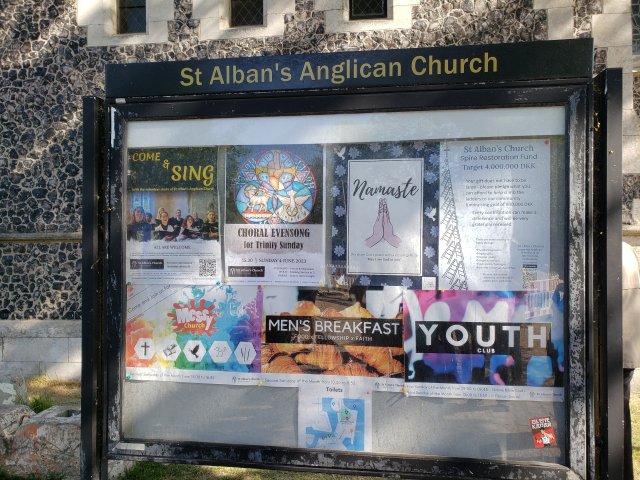I've mentioned the Task & Purpose YouTube channel before. Here's another fascinating report, about how Raytheon's new laser weapon is a promising defense against military drones, which have become a deadly problem.
Who knew that those hours and hours our boys have spent playing video games would turn out to be so valuable?
Permalink | Read 957 times | Comments (0)
Category Random Musings: [first] [previous] [next] [newest]
Here ya' go. No politics, nothing depressing. Serious, but light. No puppies or kittens, but Beaver Engineers. Take a couple of minutes and read Heather Heying's "Just How Busy Is the Beaver?" Here's a taste:
Beavers are woefully underestimated. They create the landscapes that they live in, and maintain those landscapes efficiently and fervently. Beavers are indeed busy, and their hard work creates habitat for countless others.
Where today there are flat, fertile valleys, the first Americans would have walked into wetlands from slope to slope. Frogs and fish flourished in the water, butterflies, bees, and birds did so in the air; and all manner of plants thrived on land. Beavers, like nearly all dedicated herbivores, require a diverse diet of many species. Where beavers thrive, so too do the species on which they depend. Beavers had already been dominant for a very long time by the time the first people arrived in America, and had transformed it into a verdant landscape. In the American West, which is now known for its droughts and fires, a beaver engineered landscape was both a wetter and more resilient place, far more immune to the vicissitudes of the weather.
Now we have an American West wracked by fires, with waterways which have collapsed into deep arroyos and canyons that oscillate between flood and drought. When the landscape was being actively maintained by beavers, it was greener and wetter, and more resistant to both drought and fire.
Far from being simply a pest species, beavers were the water managers of North America. They were builders and gardeners, whose millions of years of work here helped build resilient ecosystems. Some of our most tenacious environmental problems would be alleviated if we welcomed beavers back.
Permalink | Read 822 times | Comments (0)
Category Conservationist Living: [first] [previous] [next] [newest]
I just saw an awesome t-shirt; if I had documented Native American blood in my lineage, I'd buy one immediately.
Back in the days when the YMCA Parent-Child programs were Native-American themed, our "tribes" were invited to come to the real annual pow-wows of Florida's Native peoples. These joyous occasions—in atmosphere much like the small-town fairs of my upstate New York childhood memory, though with a different flavor—featured the expected drumming, dancing, singing, and my personal favorite, pumpkin fry bread.
The gatherings were also overtly Christian and proudly patriotic. Many of the people also preferred the name "Indian" over "Native American," so out of respect for them I never feel bad about using that now-out-of-fashion term.
The t-shirt I mentioned? I can so see these people wearing that shirt with pride. It proclaimed,
America: Love It
or Give It Back!
Soon after Russia invaded the Ukraine, I posted this plea to Pray for Russia. Over a year later, the need is greater still.
I'm a child of the Cold War, accustomed to thinking of Russia as the Enemy. (More accurately, the Soviet Union, but "Russia" was a common catch-all term.) Right up until the Berlin Wall came down and Communism in Eastern Europe fell with it. After that, despite a certain amount of sabre-rattling, we enjoyed a thirty-year period of vastly improved relationships, especially on the people-to-people level. Travel between our countries became easier, and Americans and Russians found room in their hearts for friendship, appreciation, and mutual respect.
We even planned a visit to St. Petersburg, and scheduled it for September of 2020. We all know how that worked out. That's one evil that can't be laid at Vladimir Putin's door.
The Hermitage is now forever out of reach for me. True, I never thought I'd be able to travel to Cuba, and yet we did, in 2017. Nonetheless, my imagination won't stretch to my living long enough for Russian-American relations to get back to the casual tourist level.
It's easy, once again, to see Russia as the Enemy. It's hard not to fly the Ukrainian flag in our hearts, since they were the ones who were invaded, even if we know that the situation is more complicated than we want to believe. (Wars always are.)
It may be tempting to view today's news of potential Civil War in Russia as a positive sign, but I think that's misguided. It's naïve in the extreme to believe that Putin's downfall could only be an improvement.
Pray for Russia. For our sakes as well as theirs.
I'll leave the last word to J. R. R. Tolkien.
For a while the hobbits sat in silence. At length Sam stirred. "Well, I call that neat as neat," he said. "If this nice friendliness would spread about in Mordor, half our trouble would be over."
"Quietly, Sam," Frodo whispered. "There may be others about. We have evidently had a very narrow escape, and the hunt was hotter on our tracks than we guessed. But that is the spirit of Mordor, Sam; and it has spread to every corner of it. Orcs have always behaved like that, or so all tales say, when they are on their own. But you can’t get much hope out of it. They hate us far more, altogether and all the time. If those two had seen us, they would have dropped all their quarrel until we were dead."
"It is a pity that our friends lie in between," said Gimli. "If no land divided Isengard and Mordor, then they could fight while we watched and waited."
"The victor would emerge stronger than either, and free from doubt," said Gandalf.
You know I'm a big fan of Bret Weinstein and Heather Heying—the folks I call my favorite Left Coast Liberals. There's a lot we disagree about, but plenty of common ground, and I admire their dogged search for truth and willingness to follow where it leads, even if that sometimes aligns them with people they were once taught to despise.
For longer than I have known of them, YouTube has been profiting off their popular DarkHorse Podcast without remunerating them in any way. That is, YouTube "demonetized" them, which means that they can no longer get revenue from the ads YouTube attaches to their posts. The ads are still there, but YouTube takes all the profit for themselves, instead of just a percentage. (Okay, I'm aware that 100% is also a percentage; you know what I mean.) It's a dirty trick, and forces content creators to tie themselves in knots trying to avoid giving YouTube an excuse to demonetize them or to shut them down altogether. In frustration and protest, many creators have left YouTube. But that's a tough way to go, as YouTube's stranglehold as a video content platform is exceedingly strong.
One alternative that has become more and more popular is Rumble, largely because it makes a point of censoring only the most egregious content (e.g. pornography, illegal behavior) while encouraging free speech and debate, including unpopular views—such as the idea that the COVID-19 virus was originally created in the Wuhan lab during U.S.-sponsored gain-of-function research. While widely accepted now, it was not long ago that expressing such an opinion on YouTube was a fast track to oblivion.
Rumble has been steadily making improvements, but it's still not as polished and easy to use as YouTube. YouTube still has a virtual monopoly, so few content creators can afford to drop it altogether. And if your content has no political, medical, or socially-unacceptable content, it's hard to find the incentive to make the effort to switch. So I won't be boycotting YouTube any time soon.
That said, I'm glad to see that while we were out of the country, DarkHorse began moving to Rumble. Apparently they will do what many other creators have done, keeping a smaller presence on YouTube, which has by far the wider reach, while enduing Rumble with additional content. Viva Frei, for example (my favorite Canadian lawyer's site), does the first half hour or so of his podcast on both YouTube and Rumble, then invites his YouTube viewers to move to Rumble for the rest of the show. How it will eventually work out for DarkHorse I don't know yet, but for the moment, their podcasts still appear on YouTube, but the question-and-answer sessions, along with some other content, are exclusive to Rumble.
In honor of DarkHorse's new venue, and to give myself a chance to learn how to embed a Rumble video here, the following is the Q&A session from Podcast #175.
Embedding the video turned out go be easy enough, but I haven't yet figured out how to specify beginning and ending times. So I'll just mention that the section from 12:47 to 31:10, where Bret and Heather deal with the subject of childhood vaccinations, is particularly profitable. It may lead some of my readers to realize how insightful they themselves were many long years ago.
Heather's brief environmental rant from 1:11:35 to 1:12:45 is also worth listening to.
Permalink | Read 1245 times | Comments (0)
Category Politics: [first] [previous] [next] [newest] Computing: [first] [previous] [next] [newest] Children & Family Issues: [first] [previous] [next] [newest] Random Musings: [first] [previous] [next] [newest] Conservationist Living: [first] [previous] [next] [newest] Inspiration: [first] [previous] [next] [newest] YouTube Channel Discoveries: [first] [previous] [next] [newest]
If you want to be a local guide for the Viking cruise line, one of the most important things to remember is that a large number of your clients will be retired folks. That is, on the elderly side. When you are walking them through your beautiful city, with its Gothic churches, scenic views, and cute little shops, and ask, "Does anyone have any questions?" there's a high probability that the first inquiry will be, "Where's the nearest bathroom?"
Having returned just a few days ago from one of those lovely cruises, my mind was perhaps primed for that question.
Three times a week we take advantage of the therapeutic pool at our neighborhood park. It's a fantastic opportunity and we miss it when we are away, but there's one thing about their water aerobics classes that annoys us: all of the instructors insist on playing music during the workouts. I don't mind that when the music is instrumental and at low volume, but most of the instructors apparently assume that because our bodies aren't working as well as they used to, the same applies to our ears. And anything with lyrics tends to leave me with one or more earworms for the rest of the day.
Yesterday the music was not too loud, but the songs had words and were more than usually annoying. (Have I mentioned my 60-year aversion to the Beatles and all they engendered?)
But then....
What was that? What did he just say?
"There's a bathroom on the right."
Nah, couldn't be. Then he sang it again. Yep. "There's a bathroom on the right."
Clearly this guy was a Viking cruise guide before turning songwriter.
Turns out, I'm not the only one to have heard that. Google "bathroom on the right" and you find a large number of people who made the same mistake I did, and they can't all have recently been on a cruise with fellow senior citizens.
You'll also find that the real lyrics are, "There's a bad moon on the rise."
Frankly, I think the bathroom version makes more sense.
One of these days I hope to have a more coherent set of posts about our recent cruise, but that will be a while—and I still have barely started the big trip from a year ago. So for now, I'll take inspiration where I find it as I look through our photos.
On our brief visit to Copenhagen, one of the first sites we encountered was St. Alban's—the only Anglican Church in Denmark, built in the 1880's for the city's English-speaking population. We did not get to go inside, our tour guide having a schedule to keep, put I did get some shots of the outside as we went by. Its flint walls are unusual for Scandinavia.
I took the next picture just to remind me later which church this was.
But then this notice on the board caught my eye.
I find that odd, and not a little bit jarring. In much of the world, that would be a distinctly un-Anglican sentiment, though some American Episcopal churches would undoubtedly be fine with it.
I am not and have never been one who desires a "spa treatment." Manicures, pedicures, full-body massages, facials, being rubbed with weird-smelling oils—the very thought makes me shudder. Granted, I can't really say I don't like the experience, because I've never tried it. On the other hand, I've never tried running into a burning building, either, but I think I can safely say I'd rather pass on that experience.
It seems to be generally true that cruise ships and resorts include spa facilities. I've always avoided them as enthusiastically as I avoid the casinos, bars, and smoking areas.
And then came our Viking Ocean cruise.
What's the difference? This spa had a dry sauna, a steam room, a cold room (with "snow"), a cold-water bucket shower, and ... a cold plunge—a small, shallow pool of a temperature that reminded me of the Pacific Ocean off the cost of Washington. And, unlike all the other spa services, these didn't involve an additional charge.
All were interesting, but I soon settled into a routine I loved: time in the steam room, followed by (much less) time in the cold plunge, then back to the steam, then the cold, etc. On the first day, the experience took a lot out of me—just two in-and-out dips left me completely exhausted.
But also exhilarated. With each day, each dip, the cold became less of a shock, and I was able to stay in the water longer. If I'd been able to swim it would have been easier, but the tank was even smaller than a typical hot tub.
I'm totally amazed at how good it made me feel.
I was told that the steam room was 113 degrees, and the cold plunge 52 degrees. (If those seem like weird numbers, consider that they were originally given in Celsius.) It occurred to me that I could duplicate the experience at home with a hot shower and our pool, which has been known to get into the low 50's in the winter. So there's no need to go to a spa for it. Whether or not I will actually do it at home remains to be seen.
But from now on, if I'm on a cruise or at a resort with spa facilities, I won't automatically avoid them like the plague.
"By the rude bridge that arched the flood..."
Oh, wait, that was a different war.
But here, where we are berthed, on September 1, 1939, the first shots of WWII were fired. (This is the view from our balcony.)
The following is excerpted from an article in the June 1980 National Geographic magazine: "Indonesia’s Orangutans: Living with the Great Orange Apes," by Biruté M. F. Galdikas, adjunct associate professor of anthropology, University of New Mexico. Her son, Binti, was born at their research camp and lived there until he was three years old.
Bin’s development during the first year helped clear up my own thinking. Up to that point most of my adult life in the forest had been orangutans and more orangutans. … After five years of living with orangutans, I had reached the point where the line between human and ape was getting somewhat blurred.
Sometimes I felt as though I were surrounded by wild, unruly children in orange suits who had not yet learned their manners. They used tools, liked to wear bits and pieces of clothing, loved to indulge in junk food and candies, were insatiably curious, wanted constant affection and attention, expressed emotions such as anger and embarrassment in a manner seemly very similar to human beings.
Further, laboratory studies that indicated apes could use sign language and were capable of complex reasoning made me wonder. I was actually beginning to doubt whether orangutans were all that different from human beings.
But Bin’s behavior in his first year highlighted the differences very clearly, and offered me a new perspective. At the same time I was hand raising Princess, a 1- to 2-year-old orangutan female. A 1-year-old orangutan merely clings to its mother (or me in this case), showing little interest in things other than to chew on them or put them on its head. For Princess the main interest in life seemed to be sustenance. This trait would continue throughout life; orangutans are extremely food oriented.
Bin, on the other hand, was not particularly food oriented; in fact, unless he was very hungry, he gave all his food to Princess. He was also fascinated by objects and implements and would watch in great concentration whenever Rod or I, or an orangutan for that matter, used one of them. He was constantly manipulating objects. Another major difference was that Bin babbled constantly, while Princess was silent except when squealing.
I found it fascinating that many of the traits associated with the emergence of humankind were already expressed in Bin’s development before the age of 1: bipedal locomotion, food sharing, tool using, speech. These differentiated him sharply from an orangutan of equivalent age. I knew from my experience … that orangutans were capable of such behavior at a later age, but it never developed as fully.
Permalink | Read 1130 times | Comments (0)
Category Children & Family Issues: [first] [previous] [next] [newest] Random Musings: [first] [previous] [next] [newest]






